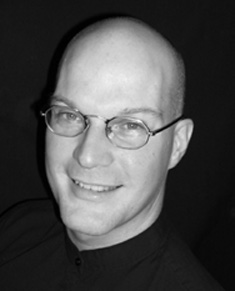 |
| B | I | O | G | R | A | P | H | Y |
Robert Wannamaker is a composer, improviser, music theorist, mathematician, and educator. He has written music for large and small ensembles, solo instruments, live electronics, and installations, as well as electroacoustic and algorithmic music. His music reflects his interests in the physicality and perception of sound, sonic environments, extended performance techniques, tuning systems, noise, gradual processes, and algorithmic composition. His works have been performed in Europe and North America by the JACK Quartet, Ensemble Ascolta, Shadow Language Electric Guitar Quartet, SONOR Ensemble, Ensemble Chronophonie, The Nonsense Company, Mattie Barbier, Angharad Davies, Barbara Lüneberg, János Négesy & Päivikki Nykter, Vicki Ray, Andrew Tholl, and others.
Rob's scholarly interests include the application of psychoacoustics to musical analysis, mathematical models of pitch organization, tuning theory, and the history and analysis of contemporary music. His two-volume monograph The Music of James Tenney analyzing the music and thought of the influential experimental composer is published by the University of Illinois Press. His other scholarly publications have appeared in The Oxford Handbook of Spectral Music, Contemporary Music Review, Music Theory Online, IEEE Transactions on Signal Processing, Physical Review E, the Journal of the Audio Engineering Society, and elsewhere. With Stanley P. Lipshitz and John Vanderkooy of the University of Waterloo's Audio Research Group, his research on the mathematical theory and engineering implementation of dithered quantization techniques has made them universal in professional digital audio applications. His methodology for designing psychoacoustically optimal filters for noise-shaping quantization-error feedback is also widely used.
Rob teaches at the California Institute of the Arts where he is Associate Dean and Professor of Composition, Theory, History & Literature. He holds a Ph.D. in music composition from the University of California, San Diego and a Ph.D. in Applied Mathematics from the University of Waterloo. His principal teachers in music included Chaya Czernowin and James Tenney, but also Roger Reynolds, Gerald Balzano, Charles Curtis, Miller Puckette, and David Lidov. He studied improvisation with George Lewis at UCSD and Casey Sokol at York University. His principal teachers in mathematics included Stanley P. Lipshitz and John Vanderkooy.